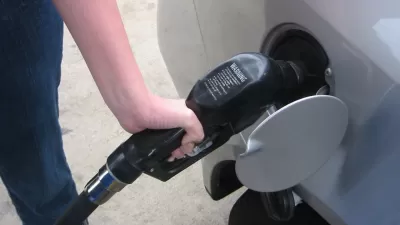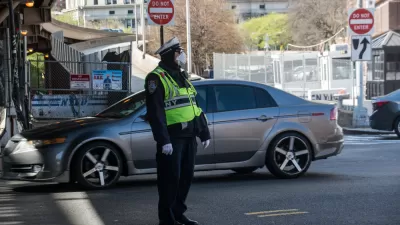Thanks to two recent New York State court rulings, disposable food and beverage containers will no longer be made from polystyrene in the nation's largest city. The ban was originally proposed by Mayor Michael Bloomberg in February 2013.

Mayor Michael Bloomberg proposed a ban on foam food containers in February 2013 and the City Council approved it in December, but it was his successor, Mayor Bill de Blasio, who put the ban into effect in July 2015. Acting on a lawsuit led by Michigan-based Dart Container Corporation, New York State Supreme Court Justice Margaret A. Chan overturned the ban less than three months later, denying the city’s claim that recycling used polystyrene containers "was neither environmentally effective nor economically feasible.”
The New York City Sanitation Department issued a new report [pdf] in May 2017 to prove their original findings, that it wasn't feasible to recycle used polystyrene, and the plastics and food service coalition sued again, but this time Justice Chan upheld the ban in June 2018. The Restaurant Action Alliance appealed to a New York State appeals court which upheld the ban in October, writes Eric A. Goldstein, New York City environment director for the Natural Resources Defense Council, "delivering a victory to all who care about reducing street litter and waterway pollution in the nation’s largest city."
Technically called expanded polystyrene, or EPS, it is often confused with Styrofoam™, a Dow trade name, which is actually blue in color.
In addition to foam clamshells and take-out containers, the ban also applies to foam cups, plates, bowls and foam packing peanuts, writes Michael Gold for The New York Times, who also reports on other new laws that took effect New Year's Day in New York City. Businesses who don't adhere to the new law will be warned, with fines to be applied in July.
Expanded polystyrene is recyclable, but it's not economical to do so. Green Citizen in the Bay Area charges consumers $5 per 30 gallon bag, and it must be clean. The same properties that make EPS an effective insulator is what makes it so difficult to recycle. It's low density makes it difficult to transport. In the environment, it doesn't degrade.
"[A]lthough polystyrene only comprises about 2 percent of the total municipal solid waste stream by weight, it comprises roughly 30% of the total volume in the landfill due to its excessive use in packaging," according to American Disposal Services.
According to Californians Against Waste, 119 local governments have enacted expanded polystyrene food packaging bans as of last year.
In February 2018, Dunkin' Donuts announced that it will end using polystyrene foam cups by 2020.
FULL STORY: A Long-Awaited Ban on Foam, and Other New Laws in New York in 2019

Planetizen Federal Action Tracker
A weekly monitor of how Trump’s orders and actions are impacting planners and planning in America.

Congressman Proposes Bill to Rename DC Metro “Trump Train”
The Make Autorail Great Again Act would withhold federal funding to the system until the Washington Metropolitan Area Transit Authority (WMATA), rebrands as the Washington Metropolitan Authority for Greater Access (WMAGA).

DARTSpace Platform Streamlines Dallas TOD Application Process
The Dallas transit agency hopes a shorter permitting timeline will boost transit-oriented development around rail stations.

Renters Now Outnumber Homeowners in Over 200 US Suburbs
High housing costs in city centers and the new-found flexibility offered by remote work are pushing more renters to suburban areas.

The Tiny, Adorable $7,000 Car Turning Japan Onto EVs
The single seat Mibot charges from a regular plug as quickly as an iPad, and is about half the price of an average EV.

Supreme Court Ruling in Pipeline Case Guts Federal Environmental Law
The decision limits the scope of a federal law that mandates extensive environmental impact reviews of energy, infrastructure, and transportation projects.
Urban Design for Planners 1: Software Tools
This six-course series explores essential urban design concepts using open source software and equips planners with the tools they need to participate fully in the urban design process.
Planning for Universal Design
Learn the tools for implementing Universal Design in planning regulations.
Municipality of Princeton
Roanoke Valley-Alleghany Regional Commission
City of Mt Shasta
City of Camden Redevelopment Agency
City of Astoria
Transportation Research & Education Center (TREC) at Portland State University
US High Speed Rail Association
City of Camden Redevelopment Agency
Municipality of Princeton (NJ)




























